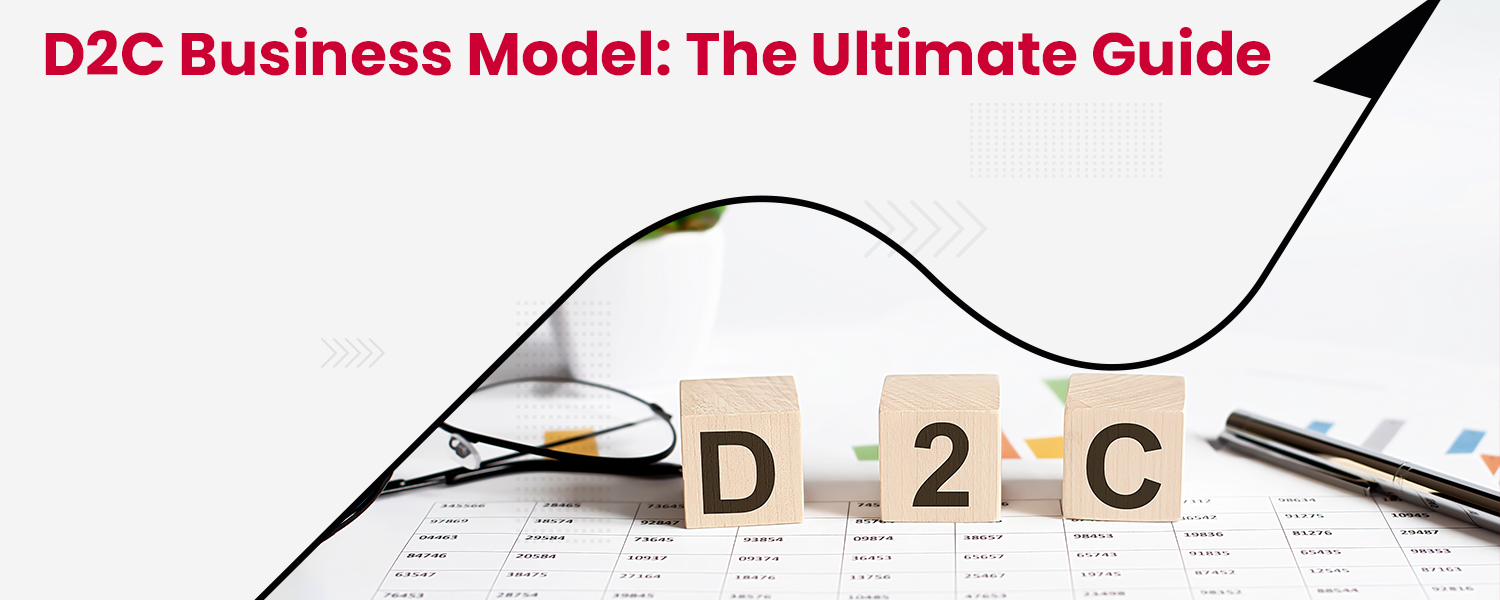If you are wondering what D2C retail companies actually are and how they operate then you are at the right place. Here, we will tell you everything about the D2C business model that there is to know.
If we compare how retail business owners ran their companies some 10 to 15 years ago to how they run it now then there is a lot of difference in their approaches. In the pre-Internet era, it was pretty difficult for small business owners to make profits without the help of distributors. As a result, the distributors/middlemen ruled the market as small retail company owners needed them to earn their livelihood.
However, that is not the case anymore as the scenario has drastically changed. With the arrival of the internet, the way businesses work has also completely changed. Today, a retail company is capable of doing everything on its own without the help of these distributors or middlemen.
What Is the D2C Business Model?
In a more traditional business model, a product after it was manufactured would go through different people before finally reaching its end customer. From the manufacturer, it would go to a wholesaler, then to a distributor, then to a retailer, and then finally to the customer. It was a more traditional approach to a retail business and it consisted of a lot of middlemen.
Whereas, on the other hand, the D2C business model actually ‘cuts out’ these middlemen. D2C stands for direct-to-consumer and the business model is exactly what its name suggests.
D2C retail companies or direct-to-consumer brands produce/manufacture their products and then sell them within their own channels. These channels could be either a retail store, an eCommerce website, or social media.
The basic idea behind this is to cut out all the middlemen and keep the process of selling only between the brand and its final customer. The D2C model offers lots of benefits including bringing a brand closer to its target audience.
Direct-to-consumer brands are rapidly emerging and this is greatly transforming how people shop. In fact, D2C retail companies are even more relevant in today’s era as even research has shown that about 55% of customers prefer shopping directly with the brand than through its retailer.
So, many new emerging companies are already adopting the D2C business model while a lot of already established ones are moving their business model from the traditional one to D2C.
Benefits of The D2C Business Model
1. You Have Full Control Over Your Brand’s Reputation
In a more traditional business model, manufacturers had little control over when their products would get sold by retailers. While they had control over their packaging and outbound marketing activities, these manufacturers had no control over their sales once the product hit the shelves.
And even if these companies spent big on their advertising, they still had chances of incurring losses if the retailers struggled or failed to sell their products.
That is one of the major reasons why many companies are now shifting to the D2C approach. It gives the direct-to-consumer brands more control over their brand’s reputation, as well as the products.
2. Gain A Better Understanding of Your Customers
One of the major advantages that D2C retail companies have is that they can analyze their customers and the customers’ needs better. This can help them analyze where things are going right or wrong and then shape their brand to suit the customers’ needs better.
Manufacturers with a traditional business retail model rarely ever interact with their customers. Thus, they don’t really get an opportunity to get to know their end customers or what their needs are.
It is always ideal to have direct contact with your customers through every stage of the sale process. This enables you to know what your customers actually expect from you and also whether your products or services meet their expectations. You get direct feedback from them which is always very valuable for a business.
The D2C business model enables business owners to get direct insights and gather data that is extremely essential to them.
This also enables businesses to establish a good relationship with their customers and thus, retain them for a long time.
3. Multi-Channel Presence
Probably one of the best advantages that direct-to-consumer brands have is having their presence across multiple channels. This doesn’t just mean that these brands are more discoverable but it also gives their customers an option to purchase across various channels.
Consumers tend to like it when they get to choose their preferred purchasing channel rather than just one fixed channel. The different channels that a D2C retail business can choose include all social media platforms, different ecommerce platforms, a dedicated website, and more.
4. Gain Higher Margins
The D2C model basically cuts out all the middlemen. When middlemen are involved, it means that a certain percentage of the profits earned is controlled by them.
However, with the middlemen are eliminated, you don’t just save money but you also have complete control over all your funds. As a result, D2C means more money in your pocket as compared to the traditional business model.
5. More Scope For Personalization/ Innovation
With D2C, you have more scope for product testing. Depending upon what your consumers are looking for, you can easily innovate and personalize.
While in a traditional model, manufacturers tend to produce items that the retailers want, D2C gives you more opportunities to innovate.
From a consumer point of view, this is always extremely beneficial.
Tips For Going D2C
If you are ready to adopt the D2C model for your business, then here are a few tips for you.
- Focus on product and brand building.
- Devise an Omnichannel strategy and focus on marketing efforts.
- Leverage social media to create a strong visual identity.
- Focus on an end-to-end customer experience.
Conclusion
We hope this blog post gave you an idea of what the D2C business model is and how D2C retail companies work. D2C is definitely here to stay for the long run and if you are thinking of starting a business then this is the way to go.




